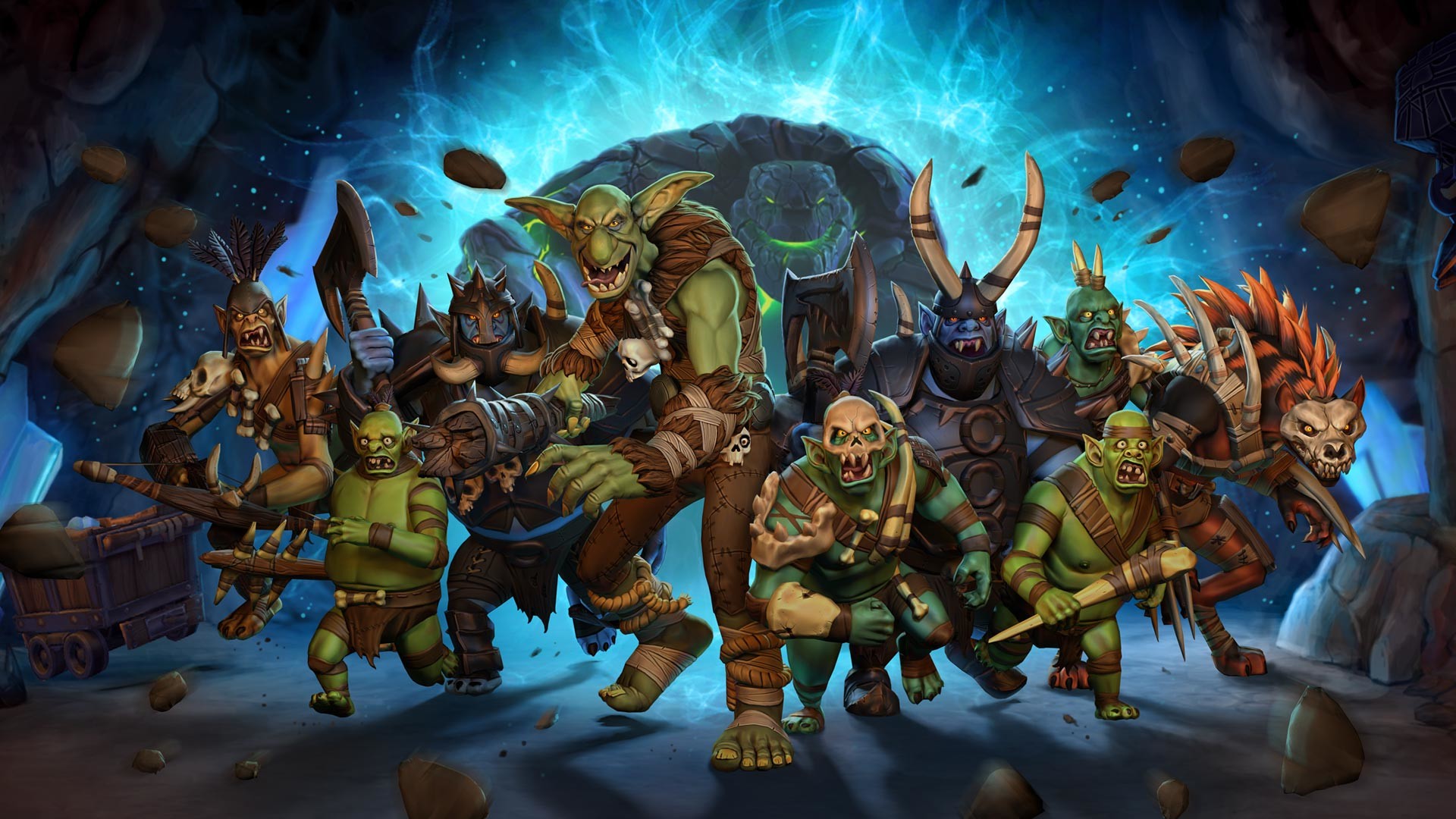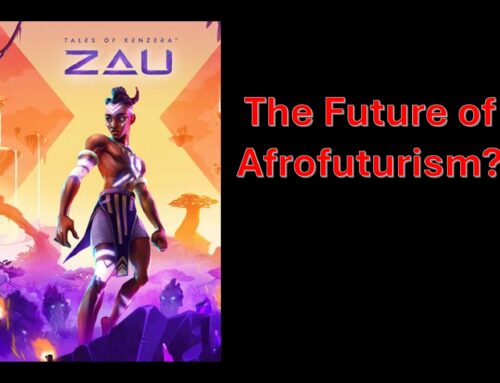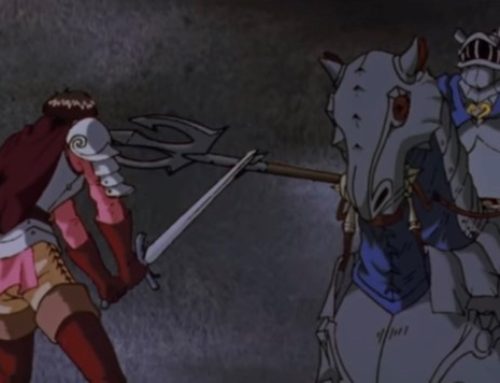Probably one of the most controversial subjects in fiction has been the inclusion of races that are wholly, entirely evil. There is, of course, the infamous video from Extra Credits that discussed the subject, “Evil Races are Bad Game Design,” which you might need to watch to understand the point of this post. I’m going to take the highly risky stance that while Extra Credits did a poor job explaining their position on the matter, they were not, and still aren’t, entirely wrong.
The first subject that needs to be examined is bio-essentialism; that is, the idea that certain things essentially must have certain traits to fit in with the rest of their species. All chickens lay eggs, all mammals are warm-blooded, etc. The problem with bio-essentialism is that, while some things are nigh-100% accurate in these measurements, nothing is ever truly guaranteed for any member of a given species. Some chickens are infertile and, for whatever reason, do not lay eggs. Some mammals are born with defects that make it impossible to control their internal temperatures (I actually knew a guy with fetal alcohol syndrome who had that exact condition). And so, because there is always that one odd exception, we assume that bio-essentialism doesn’t work, because it is never 100% accurate.
And if you applied this kind of thinking to any other field of intellectual study, you might as well throw all science, philosophy, and mathematics out the window and go live in a cave worshipping the sun, or something. We can easily find exceptions to every rule we’ve ever come up with in any field, whether it’s Euclidean geometry not working in outer space, matter always having the potential to pass through other matter, even when the odds of it happening are infinitesimally small…we could literally do this forever.
Where Extra Credits focuses most is on the question of whether a sapient race of beings can always be evil, as an essential trait. The first thing I have to point out here is that, according to some religions, humans in general are always evil unless we work extremely hard at being anything else. Anyone with small children will tell you that there is definitely some truth to the idea that we’re all born bad, and that we have to learn how to be good. But focusing on, for example, the subject of orcs, lets us examine a race that’s entirely evil by our modern standards.
As the Extra Credits team points out, a race of beings that we, as players in a video game, are told are all evil, could easily be an opportunity for us, the player, to examine further. Case in point, in Fallout: New Vegas, a wide variety of characters refer to a tribe known as the Great Khans as an all evil or at least unlikable tribe. It says a lot when a robotic character names “Yes Man,” who is literally programmed not to offend anyone, can’t think of anything nice to say about them. The player has the option to go meet with the Great Khans, and discover that…yeah, they pretty much are a dirty people, who somehow manage to use even the kindness shown to them by the Followers of the Apocalypse, who showed them how to use the plants in their environment to make medical supplies to trade, and instead the Khans use them to brew drugs to sell to chem fiends and get people addicted. The player could reasonably choose not to destroy the Great Khans, but it’s pretty telling that there are no real happy endings available for them, apart from leaving the Mojave Wasteland for good. But part of what makes this the greatest Fallout game ever made is that we, the player, have the option to investigate whether the Khans really are as evil as people say, lets us speak to and negotiate with the khan leadership, and determine that, yeah, they are evil. We, the player, get to investigate this for ourselves, rather than just accept what we’re told, even if it turns out to be true. Ultimately, our moral choices don’t matter regarding the Great Khans, but that doesn’t mean they aren’t worth making, since they do matter regarding us as the player, and perhaps to the player character and his companions.
Now, at the 3:15 mark of the Extra Credits video, they raise a valid point that probably should be examined by more writers. Namely, that if an entire race of beings has no choice as to whether they are evil or not, are they really evil? Let’s consider the goblins of Goblin Slayer again for a moment. Their options are: abduct and assault women, or go extinct. That’s it. I don’t know a single person who would consider these creatures to be anything other than pure evil, but from a philosophical perspective, there is an argument to be made that they aren’t really evil because they don’t have a better choice available. “Kill yourself” is never really a good alternative to otherwise “evil” actions, even if you don’t subscribe to a religion that frowns upon suicide. And yet, we all seem to agree that the goblins are still evil.
The point I want to get to here is that, a purely evil race can still be created in your writings, but there needs to be some explanation besides “they’re just bad.” And here is where my biggest beef with Extra Credits comes up, where they discuss the Warhammer 40K universe. They either don’t understand the lore of Warhammer 40K, or they deliberately ignored it.
None of the purely evil races of Warhammer 40K are without reason for being the way they are. For example, the Orks are perhaps one of the most ingenious interpretations of an old, traditional monster race that I’ve ever seen. One of the main complaints people have about Tolkien’s interpretation of orcs is that they wouldn’t be able to form any kind of society stable enough to stop infighting long enough to pose a real challenge for kingdoms like Gondor and Rohan. Orks in Warhammer, however, have a perfectly good explanation for how their society works. First, they’re a race of asexual mushroom men, who procreate by leaving clouds of spores on the corpses of battlefields. This is why they always want to fight; it’s literally their reproductive instinct. They also inherit some of the skills and knowledge of their spore-parents, which is why Mekboys and Docboys exist – they inherited the collected knowledge of engineering or medicine of previous mechanics and doctors. And of course, like real mushrooms, all Orks can form synaptic links that allow Orks to share certain information and details, and allow them to form a collective psychic effect known as the Waaagh Field, which is powerful enough to make anything all Orks simultaneously believe to become reality when Orks are present. Why do Ork vehicles painted red go faster than other vehicles? Because all Orks think they do. Why does any of their technology work at all? Because Orks think it should.
Other races in Warhammer 40K give interesting examinations of evil races as well. For example, the Necrons have an inherent disdain for all organic life as a direct result of having been turned into cybernetic lifeforms. And while some of them can be negotiated, their cultural disdain for all other races makes them more like evil, arrogant space elves than a generic evil race. In the opposite vein, the Tyranids show us a race of nearly mindless invaders who simply want to eat everything in the galaxy. These aliens are arguably not evil at all; they’re no different than space-faring piranhas. But that doesn’t stop them from being a dangerous race of aliens that need to be exterminated when found, functionally no different than a virus with claws and teeth. The moral questions about Tyranids don’t really matter; they’ll kill you and munch on your corpse regardless.
Now, consider this: a game tells you that orcs are evil because they’re just savages that live and act like Vikings, plundering civilized communities, stealing everything they can, and leaving lots of half-orc babies behind. The question is, what if orcs chose to build a civilization that wasn’t a savage, stone-age barbarian tribe? What if they decided to build a city, like ancient, previously uncivilized humans did a long time ago, and made a new culture that slowly progressed towards what we would consider moral by our standards? Is it the race that’s evil, or are orcs simply an always evil culture? You can have a game that gets along just fine by showing exclusively barbaric, undeveloped orcs who loot and steal because they haven’t put together any other kind of culture, and it works just fine. But examining whether this is something all orcs have to be, or the difficult process of civilizing an as-of-yet uncivilized people could make for very interesting storytelling.
And finally, note that not every story has to be deep and thought provoking. Some stories really are about mindless, violent fun, and having a race of bad guys to stomp on can be fine. I do recommend making some elements as to why the bad guys are bad; simply making them barbarians, bandits, or other visually distinct markers of evil works well enough, but they aren’t necessary. In real life, if you were walking along the road between towns, and someone started screaming manically and swinging an axe overhead, you don’t have time to think about whether this guy was born evil, was raised in a primitive, barbaric society, or is just from a weird culture where this is how they say “hello.” You only have enough time to make a snap decision, and hopefully you aren’t travelling unarmed.
But if you’re writing a book, or a single-player RPG where you have more room to explore the fictional world you’ve created, giving a reason as to why the evil races are evil will answer some of the inevitable questions people are going to ask. Going one step further and explaining how an evil race can build a functioning society will also prevent people from wondering years later how your orcs are a threat to cities like Gondor.





